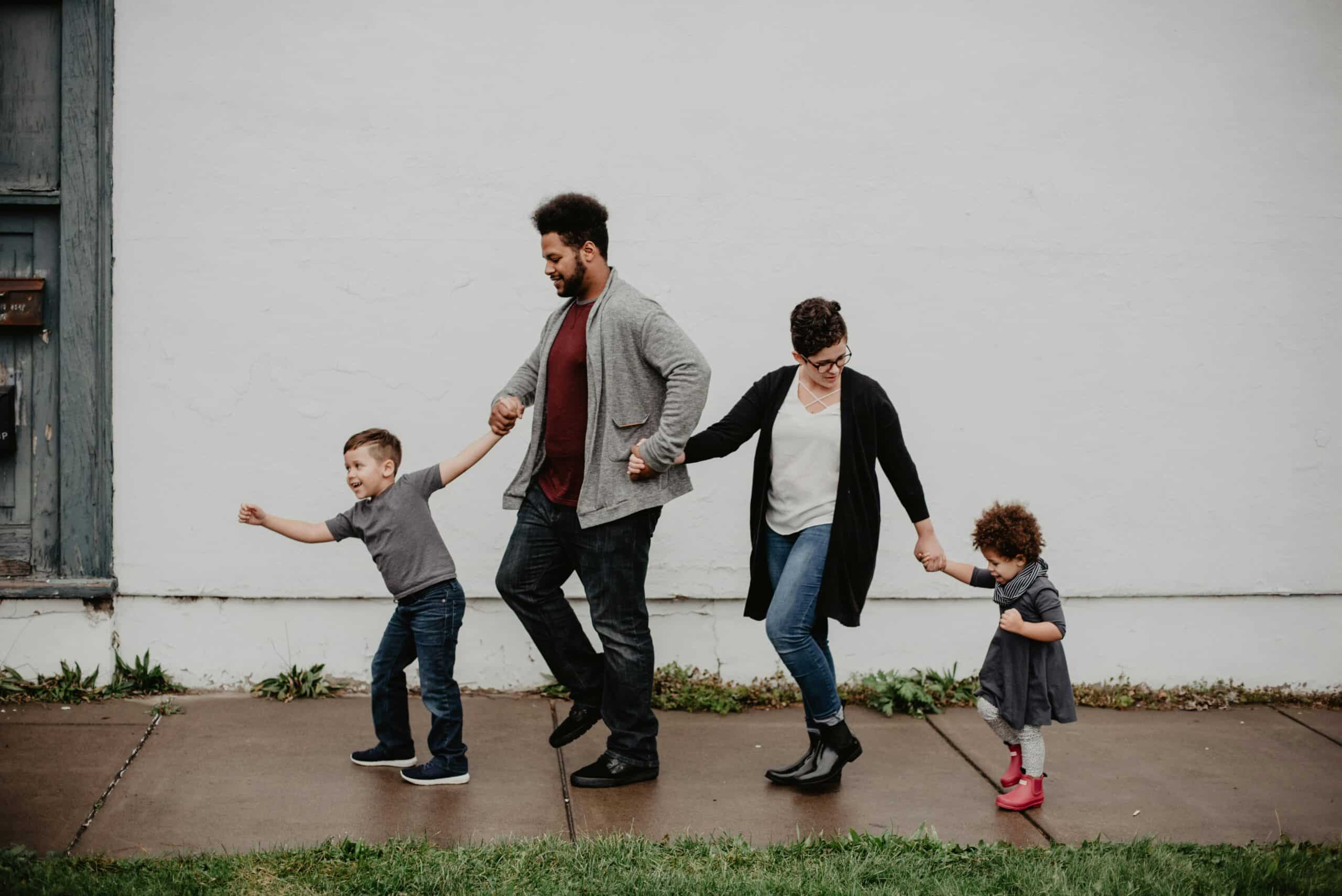8 Min Read
Recognizing Unhealthy Coping Mechanisms for Grief and Finding Healing
Welcome to our exploration of unhealthy coping mechanisms for grief. Navigating the emotional landscape of loss can be challenging, and understanding how we cope is an essential step toward healing. This guide aims to provide you with insights and practical advice to help you recognize and address these patterns.
What You’ll Learn:
- Recognizing Unhealthy Coping Mechanisms: Identify behaviors that might seem helpful in the short term but can hinder long-term healing.
- Understanding the Impact of Substance Abuse: Learn how turning to substances can complicate emotional recovery and discover healthier alternatives.
- The Role of Self-Harm and Isolation: Understand the signals these behaviors send and the importance of seeking support.
- Exploring Healthier Coping Strategies: Discover practical ways to manage grief, from mindfulness to connecting with support groups.
- Finding Support and Professional Help: Learn about the resources available for those experiencing complicated grief and how to take the first step toward healing.
Understanding Grief and the Grieving Process
What is grief?
Grief is a natural reaction to losing someone or something important to us. It brings with it a wave of emotions that can feel overwhelming and painful. This emotional turmoil can seep into our physical health, making everyday activities like sleeping, eating, or even thinking clearly seem impossible. While grief can be intense, it’s a normal part of experiencing loss, and learning how to cope with it is one of life’s significant challenges.
The grieving process
Grieving is a deeply personal experience. There’s no right or wrong way to go through it, and everyone’s path is unique. Healing takes time, and it’s important to allow yourself to move through the process at your own pace. Various factors, such as your personality, coping style, and life experiences, can shape how you grieve. It’s crucial to be kind to yourself and let the healing happen naturally.
Symptoms of grief and grieving
Loss impacts each of us differently, but there are common experiences and symptoms many people experience. These can include:
- Shock and disbelief
- Profound sadness
- Feelings of guilt
- Intense fear
- Anger
These feelings are normal and can vary in how strong they are and how long they last. Understanding that these emotions are a part of the grieving process can help you navigate through them with a bit more compassion for yourself.
Exploring Different Types of Grief and Loss
Grief is a complex and deeply personal experience, and there are various forms it can take. Understanding these different types of grief can help in navigating the emotional landscape that accompanies loss.
Anticipatory Grief
Anticipatory grief is something many people experience when they know a significant loss is on the horizon. It might sound unusual, but feeling grief before a loss actually happens is quite common. This type of grief can stir up a mix of emotions, with anger often being a prominent one. On the upside, anticipatory grief offers a chance to prepare emotionally and perhaps even resolve any unfinished matters.
Disenfranchised Grief
Disenfranchised grief can be challenging because it often involves losses that society doesn’t fully acknowledge or validate. This can happen when a relationship to the deceased isn’t recognized, making it hard to find the support needed to process the loss. When grief is disenfranchised, it can feel like navigating the grieving process without a map, leaving individuals feeling isolated and misunderstood.
Complicated Grief
Complicated grief is characterized by a prolonged and intense experience of mourning. It can make returning to daily routines and maintaining relationships feel nearly impossible. This type of grief often follows the death of a loved one, and it’s crucial to reach out for support. Taking steps to address complicated grief is essential for healing, and it might involve seeking help from a mental health professional or joining a support group.
Understanding these types of grief can be a helpful step in recognizing what you or someone you care about might be experiencing. Each type of grief has its own challenges, but acknowledging them can open the door to healing and support.

Find your therapist for grief today
Get personalized matchesIdentifying Unhealthy Coping Mechanisms
Dealing with grief can be incredibly tough, and sometimes, we might find ourselves reaching for ways to cope that aren’t the healthiest. It’s important to recognize these patterns so we can address them and find healthier alternatives. Let’s take a closer look at some common unhealthy coping mechanisms people might turn to when facing grief.
Substance Abuse and Drug Abuse
- Turning to substances might seem like a quick fix to numb emotional pain, but it often leads to a cycle of dependency that complicates our emotional well-being even further.
- Instead of seeking temporary relief through substance use, consider reaching out to a mental health professional, joining a support group, or practicing mindfulness to process your emotions in a healthier way.
- Substance abuse can have severe consequences, both physically and mentally, making it crucial to seek healthier coping strategies.
Self-Harm
- Self-harm is a distressing way some people cope with intense emotions like anger, sadness, or deep-seated pain. It involves inflicting physical harm on oneself, such as cutting or burning.
- It’s important to understand that self-harm is a signal that additional support is needed. Delaying seeking help can lead to further emotional and physical harm.
- If you or someone you know is struggling with self-harm, reaching out for support can be a vital step toward healing.
Isolating Oneself
- Grief can sometimes make us want to withdraw from social interactions and activities we once enjoyed. This self-imposed isolation can deepen feelings of loneliness and sadness, making the healing process even more challenging.
- Recognizing isolation as a sign of unhealthy grieving is crucial. It might appear as independence, but it often masks a cry for help.
- Finding ways to stay connected with family members, friends, or support groups can provide the social interactions needed to navigate through grief more effectively.
By acknowledging these unhealthy coping mechanisms, we can start to make conscious choices toward healthier ways of dealing with grief. Remember, seeking support and practicing self-care are important steps in moving through this difficult time. behind a facade of independence.
Navigating Coping Strategies for Grief
Healthy vs. Unhealthy Coping
When you’re dealing with grief, the way you cope can make a big difference. Healthy strategies can help you manage your emotions and find some peace. Things like mindfulness, self-care, and leaning on social support can really help. These approaches not only assist in processing grief but also reduce the risk of depression and anxiety. It’s all about finding what works for you and sticking with it.
Coping with Intense Emotions
Handling intense emotions isn’t easy, but it’s something you can work on. It takes practice, patience, and often a bit of support. A therapist can be a great resource to help you understand what you’re going through and develop ways to cope. Friends, family, or a support group can also offer valuable support. By working through these emotions, you can build resilience and regain a sense of control over your grief.
Managing Distressing Emotions
Acceptance and Commitment Therapy (ACT) is one approach that encourages accepting your emotions, whether they’re pleasant or not, and observing your thoughts without getting too caught up in them. By focusing on healthier alternatives to unhealthy coping mechanisms, like stress-reduction techniques, journaling, or engaging in hobbies, you can empower yourself to handle grief more effectively. Remember, it’s okay to seek help and take steps toward healing.
Understanding the Risks of Unhealthy Coping
Grieving is a complex experience, and how we cope with it can significantly impact our well-being. While it’s natural to seek relief from emotional pain, turning to unhealthy coping mechanisms like substance abuse can have serious consequences.
The Dangers of Substance Abuse
- Substance abuse often starts as a way to numb emotional pain but can quickly spiral into addiction. This not only exacerbates mental health issues but also becomes a major obstacle in our lives, overshadowing our ability to heal and move forward.
- When we rely on substances for temporary relief, we risk entering a cycle that makes the grieving process even more challenging. It’s crucial to recognize this pattern and consider healthier alternatives.
The Toll on Mental Health
- Unhealthy coping mechanisms can hinder our ability to process grief, prolonging emotional suffering and complicating our healing. Instead of finding closure, we may find ourselves stuck in a loop of guilt, shame, and regret.
- Seeking professional help can be a vital step in navigating these challenges safely. A mental health professional can offer guidance and support, helping us find healthier ways to cope and ultimately heal.
By understanding the risks associated with unhealthy coping, we can make more informed choices and seek the support we need during difficult times.

Find your therapist for grief today
Get personalized matchesBreaking Free from Unhealthy Coping Mechanisms
Recognizing the Signs of Unhealthy Coping
When dealing with grief, it’s not uncommon to fall into patterns that might not serve us well in the long run. Unhealthy coping mechanisms can show up in various forms, such as avoiding emotions, turning to substance abuse, or engaging in risky behavior. These responses can be signals that we might need a little extra support.
How to Stop Unhealthy Coping Mechanisms
Breaking away from these patterns requires a good dose of self-awareness and a willingness to make intentional changes. It might feel like a big task, especially if we’ve been stuck in these habits for a while, or if addiction has taken hold. In such cases, reaching out for professional help can be a crucial step toward change.
Skills to Cope in a Positive Way
Developing healthier habits can help us move away from unhelpful patterns. Practicing mindfulness, for instance, can be a powerful tool in managing emotions. By cultivating healthy coping skills, we can better navigate our feelings and find a sense of closure. These skills can empower us to handle grief more effectively, allowing space for healing and growth.
Finding Support for Grief and Loss
Seeking Help for Complicated Grief
Grief can sometimes linger longer than expected, becoming what is known as complicated grief. This type of grief can feel overwhelming, making it hard to engage with daily life. If you’re experiencing this, reaching out for support is crucial. A mental health professional or a trusted friend can offer the guidance you need to navigate these tough emotions. It’s important to remember that seeking help is a sign of strength, not weakness, and can be a crucial step toward healing.
Taking Care of Yourself as You Grieve
Looking after yourself during a period of grief is vital. Here are a few ways to nurture your physical and emotional well-being:
- Recognize Your Emotions: Give yourself permission to experience the pain and accept that it is an inherent aspect of the grieving journey.
- Express Your Emotions: Find a way to express what you’re feeling, whether through writing, art, or talking with someone you trust.
- Maintain Your Interests: While it might be challenging, try to keep up with hobbies or activities you enjoy. They can provide a comforting sense
Discover a New Way to Connect with a Therapist
Finding the right therapist can feel overwhelming, but it doesn’t have to be. WithTherapy is here to make that process smoother and more personalized. Imagine having a tool that understands your unique needs and preferences, guiding you to a therapist who truly resonates with you. That’s what WithTherapy offers—a simple, user-friendly platform that takes the guesswork out of finding support.
Whether you’re navigating grief, dealing with stress, or just need someone to talk to, WithTherapy helps you connect with professionals who can offer genuine support. It’s all about making therapy accessible and relatable, so you can focus on what really matters: your well-being.
Ready to explore your options? Visit WithTherapy today and take a step towards finding the support that feels right for you. We’re here to help, every step of the way.

Find your therapist for grief today
Get personalized matchesFrequently Asked Questions About Unhealthy Coping Mechanisms for Grief
What are unhealthy responses to grief?
Unhealthy responses to grief often involve behaviors that provide temporary relief but do not support long-term healing. These can include substance abuse, emotional eating, self-harm, and isolation. Such behaviors might offer a temporary escape from intense emotions but ultimately hinder the grieving process.
Which of the following are unhealthy approaches to dealing with grief?
Unhealthy approaches to dealing with grief can include engaging in substance abuse, withdrawing from social interactions, and taking unnecessary risks. These coping mechanisms can exacerbate emotional suffering and lead to a vicious cycle of negative behavior, making it harder to heal and move forward.
What does unhealthy grieving look like?
Unhealthy grieving may manifest as prolonged emotional suffering, difficulty returning to daily life, or a persistent sense of despair. Individuals might also experience physical symptoms like heart disease or anxiety, and they may struggle to find hope or a sense of worth living. Recognizing these signs can be a cue to seek professional help or join a support group.
How can I break free from unhealthy coping mechanisms?
Breaking free from unhealthy coping mechanisms involves self-awareness and a commitment to change. Practicing mindfulness, seeking professional help, and staying connected with family members and friends can support healthier coping strategies. Engaging in self-care and exploring hobbies can also foster emotional healing.
What are some healthier ways to cope with grief?
Healthier ways to cope with grief include practicing mindfulness, seeking support from a mental health professional, and spending time with loved ones. Engaging in physical activities, journaling, and joining a support group can also provide comfort and facilitate the healing process. Embracing these strategies can help navigate the intense emotions associated with grief more effectively.
Connect with the right therapist for you






